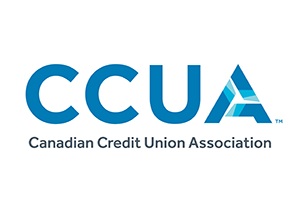Canada’s Credit Unions Line Up for Open Banking
2021-03-04Financial services are in the process of being reshaped globally, and Canada is no exception, as Open Banking is putting consumers in control of their data and allowing them to dictate with whom and how it is shared.
When the Canadian government announced that an Open Banking Framework was under development, naturally most financial institutions were concerned that a highly valuable asset, consumer data, would no longer be owned’ by them. However, as part of co-operative member-owned institutions, credit union members have always been the owners of their data. This type of governance and ownership structure changes the lens through which credit union leaders examine Open Banking, as their primary focus is on member benefits as opposed to profit incentives.
There are many ways credit unions see Open Banking as being beneficial to their members: through integrating specialized products developed by third parties into credit union platforms to assist members with unique needs; leveraging member data held externally to improve existing offerings (i.e., wealth management advice); and many more.
With all the benefits Open Banking can provide to members, it is no surprise that so many credit unions are lining up to participate. As comparatively small institutions in Canada's financial sector, offering best-in-class products and services has always required collaboration amongst credit unions to share costs and achieve scale. This principle of cooperation will become even more paramount for credit unions to succeed in the context of an Open Banking economy.
Cooperation amongst credit unions in an Open Banking world could take many forms, including:
- the shared development of digital platforms or API marketplaces.
- joint acquisitions of technology firms.
- leveraging system partners to meet data governance and compliance requirements.
The opportunities are endless. Partnerships will be a key driver of success and growth in an Open Banking ecosystem, and there is no type of organization better suited to take advantage of this opportunity than credit unions, which were formed on collaborative principles.
While credit unions are well-positioned to thrive in this new environment, Open Banking presents a unique challenge to cooperative financial institutions in Canada. The Open Banking Framework will be implemented at the federal level and most credit unions are regulated at the provincial level. Although credit unions will be permitted to opt-into the Open Banking system, there are concerns that provincial rules may be misaligned with a framework designed at the federal level, which could delay or impede proper credit union participation.
The Canadian Credit Union Association (CCUA), member credit unions and system partners are collaboratively working with government stakeholders to proactively address this issue. The benefits that Open Banking can bring to Canadians are too important, especially in the context of a COVID-19 recovery, to risk delaying credit union participation.
For more information, please contact CCUA at GovernmentRelations@ccua.com
This blog post was provided by the Canadian Credit Union Association (CCUA), World Council's direct member organization in Canada.
